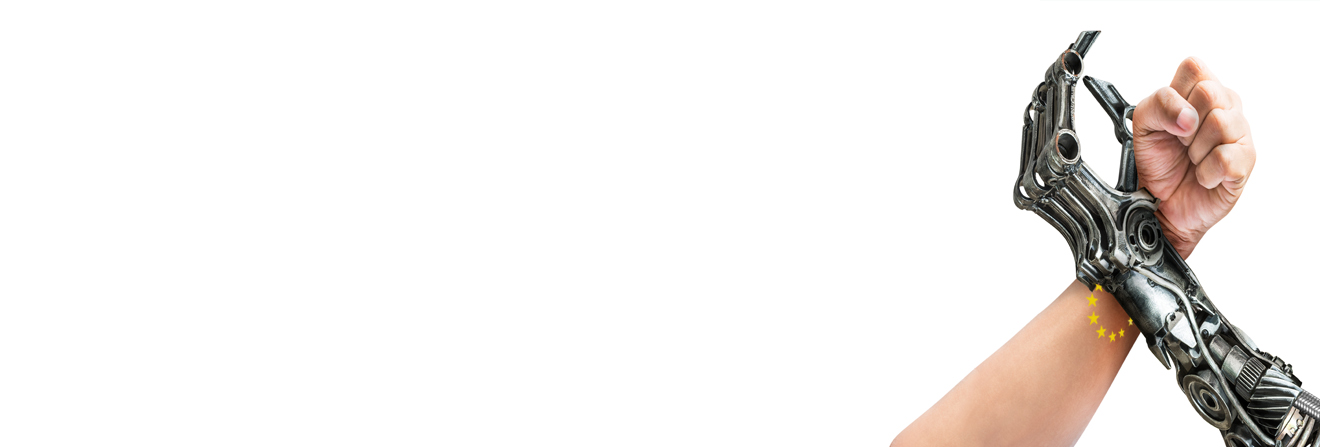“From Mary Shelley’s Frankenstein’s Monster to the classical myth of Pygmalion, through the story of Prague’s Golem to the robot of Karel Čapek, who coined the word, people have fantasised about the possibility of building intelligent machines, more often than not androids with human features”.
This is not an excerpt from a book on the history of robots in literature, but the opening sentence of the brand new European Parliament report on Robotics. Beyond this anecdotal reference, this draft report attempts to answer a question: as the presence of robots in our societies is no longer a science-fiction fantasy, and with people interacting more and more with intelligent machines in their day-to-day lives, is the future of humanity threatened? While the European Commission does currently fund robotics projects, the EU lacks a common regulatory framework in this field. Against this backdrop, the legal affairs committee of the European Parliament, has been entrusted with the task of writing a report on the issue of robotics, and has elaborated policy recommendations for the European Commission. The Commission may in turn issue legislative proposals to tackle the challenges of the rise of automation in our societies in the coming months.
The author of the draft report is Mady Delvaux, a Luxembourger MEP from the Socialists and Democrats group. Published on 31 May, the report has been analysed quite broadly, for instance in POLITICO, which underlined that the Parliament fears that robots could “herald the end of humanity”. The objective of the rapporteur is to encourage the Commission to take action on several fronts, including issues of human safety, ethics, privacy, education and labour. Striking similarities exist between these areas of reform and Netopia’s analyses and convictions, particularly with those developed in the columns entitled ‘The impact of advanced robotic engineering’, and ‘Will Robots Take Your Job?’.
As an example, the draft report calls for the creation of a European Agency for robotics and artificial intelligence, which would provide technical, ethical and regulatory expertise needed to support public actors, at EU and Member State level. On the ethics side, a Charter on Robotics which includes guidelines for robotic engineers, designers and users, is also proposed. It sets out a code of conduct so that relevant actors respect the principles of human dignity, safety and privacy. In the Netopia report on the Digital World and Ethics, Michael Streeter, Peter Warren and Jane Whyatt actually proposed considering how ethics should be brought into machines, and also floated the idea of founding a European-level technology regulation organization (see conclusion of the report).
The future of employment market is not left down to fate, but depends on the way in which we harness the opportunity of the current digital developments
Another notable element of the parliament’s report are the provisions for the civil liability of ‘smart robots’. Indeed, since such smart robots are increasingly autonomous and able to learn from experience while taking independent decisions, the question of whether robots should have a legal status with specific rights and obligations has to be addressed, the report says. A definition of smart autonomous robots, as well as a new legal category, besides the existing statuses – legal persons, animals and objects – could be set up. Strong emphasis is also put on the need to test robots in real-life scenarios for risk assessment purposes. In case of harmful behaviour, would smart robots could be held responsible for their acts? Could an insurance scheme and a compensation fund cover the potential damage? Here again, the question of the definition of a form of ‘rights’ for the machines, the ‘peril of untested software’, as well as a system of insurance, were raised by Netopia (page 21 to 24 of this report). A Netopia column entitled “Making Law for Thinking Machines” also pointed out that “there is now an urgent need for the development of intelligent algorithms to be put on the political agenda”.
Finally, Mrs Delvaux calls on the Commission to monitor job creation and losses as a result of the increased use of robots, and to identify the risks and opportunities of the growth of new technologies, in order to avoid negative repercussions on employment markets. Strong emphasis should be put on education, as Europe will be facing a shortage of up to 825 000 ICT professionals. As such, the report calls for an initiative to be launched to support women in the ICT sector. The rapporteur even suggests that, if the impact of robotics is too damaging for European labour markets and social security systems, a general basic income should be seriously considered by Member States. Netopia tackled the issue of job losses due to the use of robotics in its analysis of a widespread myth that automation would kill more jobs than it actually creates.
As the European institutions begin to build a political and regulatory answer to the development of robotics, its related risks and opportunities, an important consideration that often gets lost in the debate: humans decide if automation creates or kills more jobs. In other words, the future of employment market is not left down to fate, but depends on the way in which we harness the opportunity of the current digital developments, for instance by focusing on education and infrastructure investments.


